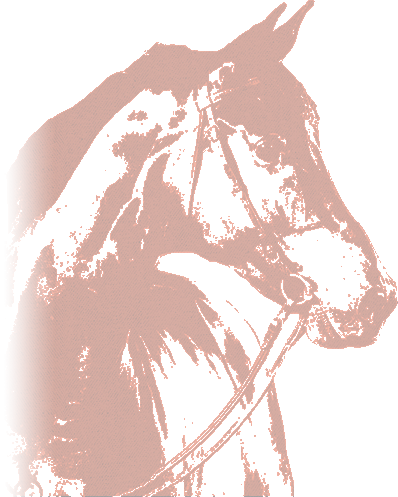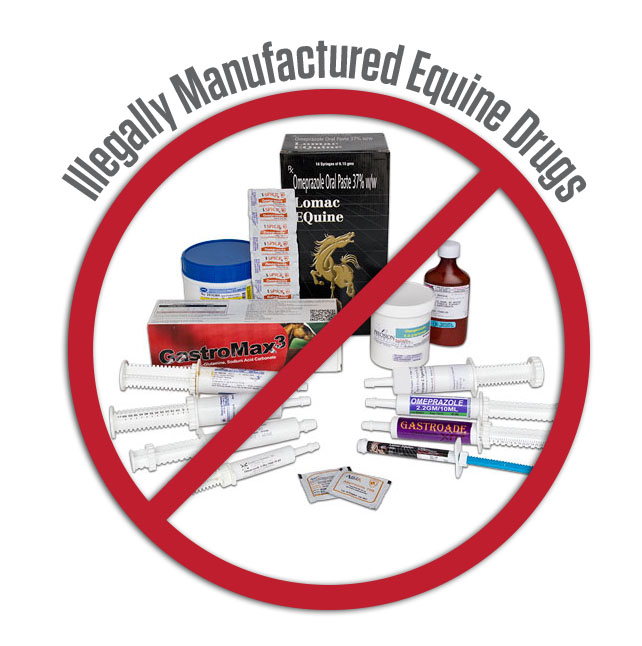It’s easy to see why compounding is a confusing topic for horse owners. While some product compounding is legal, other compounding practices simply aren’t. Legally compounded drugs are provided by a veterinarian or a licensed pharmacist at the direction of the veterinarian. Let’s clarify the difference between legal compounding and illegal manufacturing.
Legal compounding activities
Legal Compounding is the manipulation of an FDA-approved drug for the purpose of meeting the needs of a specific patient.1 An example of this is adding a flavor to a FDA-approved drug. For a drug to be legally compounded and made available to a horse owner, many rules apply, including, but not limited to:
- A valid veterinarian-client-patient relationship exists.1
- A licensed veterinarian or pharmacist must compound the product.1
- There may be no FDA-approved drug available.1
- Compounders cannot assume the role of manufacturers and cannot produce the product from a bulk (aka raw) active ingredient.1
- While there are times when a legally compounded medication could be a veterinarian’s only option, the AAEP cautions veterinarians to “limit the use of compounded drugs to unique needs in specific patients.”
Illegally Manufactured Drugs
These may be from one of the following sources:
ILLEGAL MANUFACTURING ACTIVITIES (by compounding pharmacies)
Unfortunately, equine drugs that do have FDA-approved versions available are often illegally manufactured by compounding pharmacies and advertised or sold to horse owners who are led to believe that they are the same as those legitimately on the market.
Currently, there are a number of compounding pharmacies illegally manufacturing
drugs that are marketed to horse owners as the equivalent of brand name drugs such as
ULCERGARD® (omeprazole), GASTROGARD® (omeprazole), Adequan®, Banamine®, Phenylbutazone, Protazil® and Regu-Mate®.
Multiple studies show that compounded omeprazole products are not as effective at treating ulcers as GASTROGARD and often have great variations in the amount of active ingredient versus what the label claims.1,2
These include those who are selling and marketing drugs that have not been reviewed by the FDA in any way. They often make it appear or even state that these products are “generics” but cannot provide an ANADA number. Some makers of illegal products will attempt to mislead you by stating that their product contains a drug that “is FDA-approved”. The truth is that there is no way of knowing where these manufacturers obtained their version of that base ingredient (drug) as it is not the same as that in the approved drugs which are undergoing constant safety, purity, and efficacy tests. Just because a product contains an FDA-regulated ingredient does not make it a FDA-approved product. These products:
- Do not contain an active ingredient that has been checked for purity, potency OR safety by any regulatory body
- Have not undergone efficacy or
safety evaluations to FDA standards
- Are not made in a facility that has
undergone evaluation
- Make claims that have not been evaluated by the FDA
- Do not report adverse events or lack of efficacy
to any regulatory body
Examples of illegally manufactured
omeprazole-based products are:
- Gastromax3
- Canadian Omeprazole
- Abgard/Abprazole ("blue pop rocks")
- Ulcercure OTC
- Lomac Equine
- Gastroade Xtra










